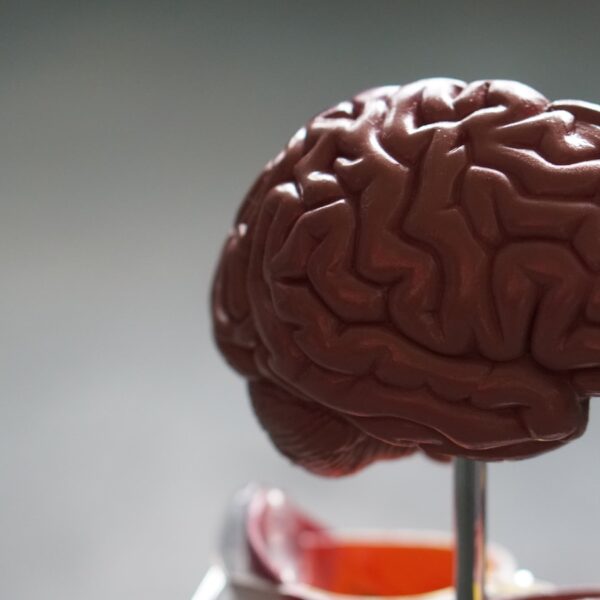There are prescription libido suppressants available, but they come with risks. You can also try herbs to reduce sexual urges, though consult a medical expert first.
Sexual desire comes from hormones and varies with age and gender. Having random erections is normal, and can happen while asleep or with a partner.
1. Meditation
It’s important to note that sexual desire is a normal, healthy part of being human, and it can come and go depending on many factors. However, if it’s interfering with your life or creating problems in your relationships, it may be worth pursuing some ways to quell your passions healthily and effectively.
Medications like anti-androgens and antidepressants can be helpful for some, but they’re not without their side effects and may not be long-term solutions. Instead, try incorporating some meditative techniques into your daily routine. Meditation helps calm the mind, improve blood flow, and redirect energy to other parts of the body – including the penis. In fact, the practice is so effective that it has been used in ancient practices such as tantric yoga to revolutionize lovemaking in the bedroom!
Meditate on a regular basis to boost your concentration level and focus on sexual pleasure. It can help you overcome any mental blockages that prevent you from having a satisfying orgasm. Moreover, the practice can also help you get rid of any sexual phobias that might be preventing you from enjoying intimate moments with your partner.
It’s also worth experimenting with some herbal remedies such as ashwagandha, saw palmetto, and maca root to see if they can cool down the bedroom drive in men. While more research is needed on these supplements, some studies suggest that they can be useful in lowering libido and promoting an even deeper orgasm.
2. Exercise
Although it is a natural human response, sexual arousal can also lead to serious physical and emotional distress, especially when it is involuntary or non-consensual. Fortunately, a variety of strategies exist for lowering libido, including exercise, cognitive-behavioral therapy and dietary changes. If arousal is interfering with daily life or causing tension in relationships, counseling may be helpful.
Getting enough aerobic exercise — such as running, swimming or walking — boosts blood flow throughout the body, including to areas that experience sexual pleasure. This helps reduce libido, particularly in women. It also improves sleep quality, which can also help control arousal. Exercise can counteract the side effects of some antidepressants, which often lower libido.
In addition to boosting energy, exercise can decrease appetite and help you sleep better. It can even help with weight loss, which can further diminish arousal.
Some men find a sense of relief, pleasure and pride in channeling their sexual energy into something else. Popular pursuits include long distance running, hiking or biking, learning to play the guitar or dance, cooking and yoga. The key is to find an activity that you enjoy and that distracts you from thinking about sex or arousal. Some people also take herbal supplements that are said to reduce libido, such as ashwagandha or saw palmetto, but more research is needed to understand their efficacy and safety.
3. Hypnosis
Sexual arousal isn’t just a problem for women, it’s something men deal with as well. Feelings of arousal can become problematic when they interfere with life’s activities, work, relationships and health. When these feelings are persistent, it’s a good idea to look into ways to quell them. Some herbal remedies and certain medications can help slow down libido, but these methods come with their own set of drawbacks and risks.
The best way to control arousal is by avoiding pornography, minimizing alcohol and drug consumption, exercising regularly and keeping busy with non-sexual hobbies. Changing thought patterns, practicing cognitive-behavioral therapy and diverting attention away from sexual thoughts are other ways to calm the body and mind. Some therapists even specialize in helping patients overcome horniness.
Hypnosis is another potential option for reducing arousal. However, the success of this method largely depends on how receptive a patient is to hypnotism. Only about 10% to 15% of people are hypnotizable, so it’s not a suitable solution for everyone. If you’re unsure whether hypnosis will be beneficial for you, consider consulting with a mental health professional. They’ll be able to assess your situation and recommend the most effective treatment option. Then, you’ll be on the path to overcoming your arousal permanently. With proper guidance, you can learn to overcome uncontrollable urges and get your life back on track.
4. Counseling
Although the libido is an important part of being human, it can be difficult to deal with if it becomes too high. Feelings of sexual arousal can get in the way of life and relationships, so it’s important to seek help when needed. A counselor can teach techniques to calm thoughts and feelings and can assist in finding alternative sources of satisfaction. This could include exercise, meditation, or hobbies such as long distance running, dancing, cooking and abseiling.
Counseling is also recommended for people who have a medical condition that impacts their libido, such as Parkinson’s disease medication, some brain injuries or mania. Medications like anti-androgens and hormonal contraceptives can decrease sexual urges, but they have drawbacks and come with health risks.
For some, a lowered libido is natural following the birth of children or as they age, but it can be hard to manage without a lot of self-control. It’s often accompanied by low self-esteem, shame and distorted beliefs around love, sexuality and intimacy.
For these reasons, counseling is recommended and can be done in one-on-one sessions or with a group of friends. A counselor can also help with overcoming problems that are causing the arousal, such as alcohol or drugs, or dealing with trauma. Other coping mechanisms, like cognitive-behavioral therapy (CBT), can be taught to help with rethinking and challenging irrational beliefs that contribute to the arousal.




Leave a Comment